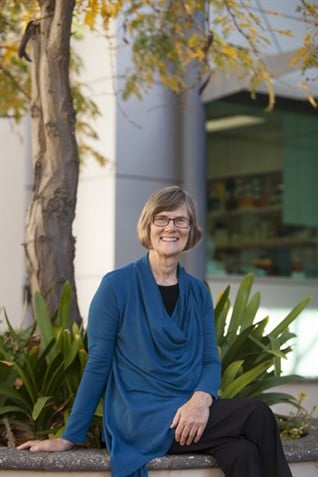More than 30 years of research into the links between folate and neural tube defects has paid off forThe Kids Research Institute Australia researcher Professor Carol Bower.
Carol and her colleagues were instrumental in influencing the government's decision to introduce the mandatory fortification of folate in bread products in Australia six years ago.
And this month she published a scientific paper which found that policy has dramatically reduced the rates of serious birth defects in Aboriginal children.
The study found the prevalence of spina bifida and related anomalies (neural tube defects) in Aboriginal babies has fallen by 68 per cent since mandatory fortification was introduced in September 2009.
"It was an amazing feeling when I looked at the results," Professor Bower said. "For me it just shows that all the hard work we have done in this area over the past three decades was worth it."
"More importantly, the policy has helped save babies' lives and helped prevent families and children from living with the challenges associated with a severe disability."
But Carol's work in folate didn't begin at the advocacy stage.
She, along with our Founding Director Professor Fiona Stanley, actually helped confirm the link between inadequate levels of folate and neural tube defects to begin with.
"We first began exploring this link back in 1981," Carol said. "Back then, it was believed that a vitamin could be the key but we weren't sure which vitamin."
In 1989, Carol and Fiona published a paper which showed folate in the mother's diet reduced neural tube defects by up to 70 per cent.
From there Carol and Fiona led a number of health promotion campaigns encouraging women to increase their folate intake through diet and/or take a folic acid supplement, but they found they couldn't reach all women with their message.
"We were struggling to reach women from disadvantaged groups or remote areas," Carol said. "We decided then that the only way to ensure all women had more folate in their diet was by adding it to something most people consume like bread."
Neural tube defects are devastating birth defects of the brain or spinal cord, which can cause serious disability and even death.
They usually develop in the first month of pregnancy even before many women know they are expecting, which means to be effective, folate intake must be increased before pregnancy.
"Almost half of all pregnancies are unplanned, which is why it is so important that women have enough folate at all times," Carol said.
Carol said mandatory fortification was particularly important in the Aboriginal population, where folate levels were much lower than in the non-Aboriginal population and neural tube defects were twice as common.
"Folate levels are much lower in Aboriginal communities, where there is less access to fresh fruit and vegetables which contain the essential vitamin," she said.
Professor Mike Daube from Curtin University was the Director General of Health when Carol and Fiona started their research and played a significant role in helping them lobby the government for change, at a time when there was a lot of restance from the food industry.
"A huge credit to Carol and Fiona in particular," Mike said. "It started with research they did in the 1980s, but crucially they didn't let it rest with publishing the results; they then followed through with more meticulous research to show that folate fortification was the best approach for the community."
"This is a wonderful example of true research translation. WA can be proud that research from the Telethon Institute has resulted in policy changes that are already preventing hundreds of neural tube defects"
But Carol stressed it was a team effort that would not have been possible without the help of many individuals, including the Australian mothers who took part in her research.
"The women who were a part of our case control studies in the 80's and 90's showed amazing strength," Carol said. "They had just given birth to a baby with a neural tube defect and were willing to fill out questionnaires and be a part of interviews, for no personal benefit."
"For our comparison group, we had women with healthy babies who were also willing to give up their time to take part in our study. I can't thank those women enough."

